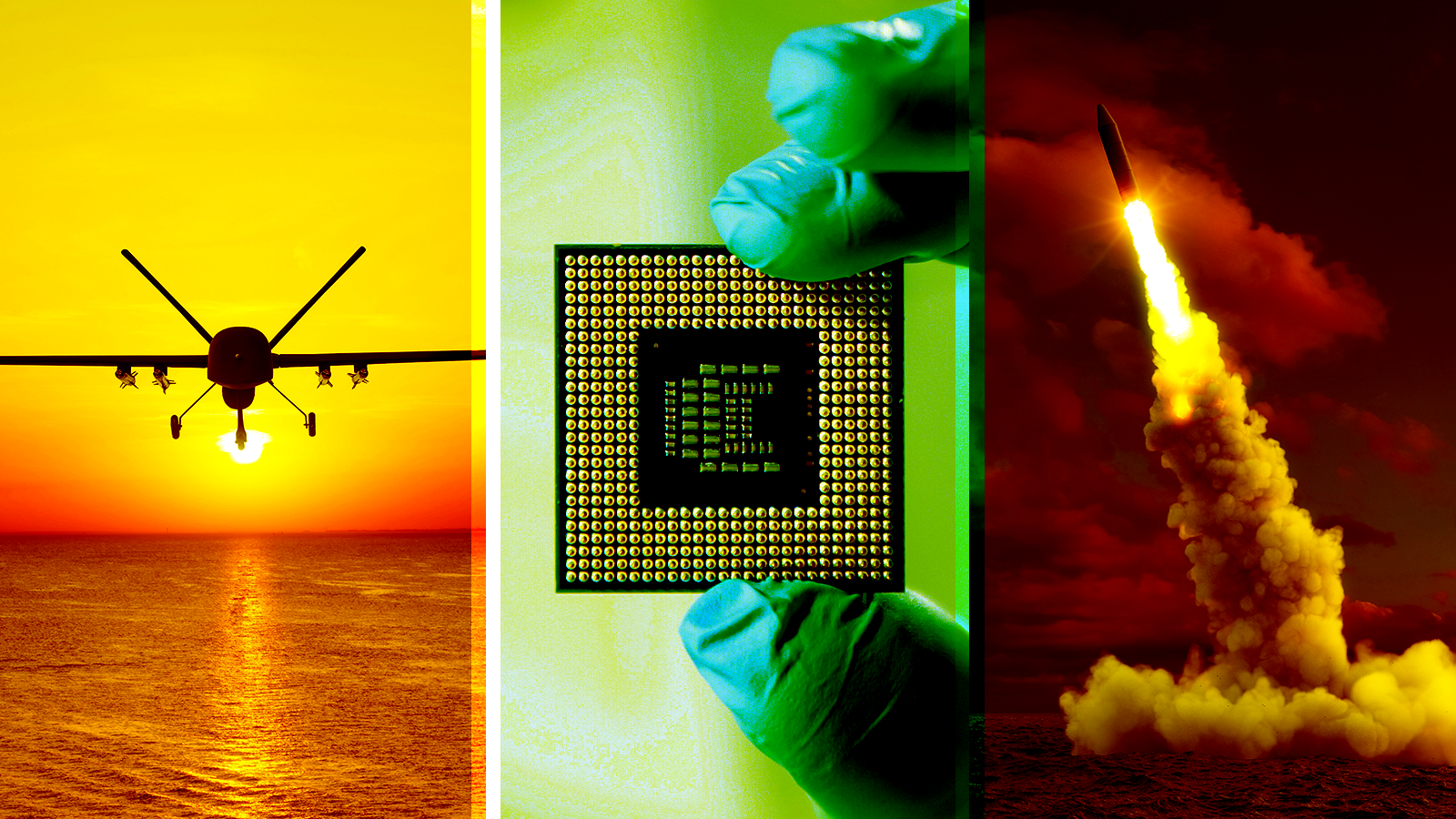The U.S. Bureau of Industry and Security (BIS) announced a significant expansion to its Entity List on Tuesday, with a sharp focus on constricting China’s access to advanced computing, quantum technologies and military modernization capabilities.
The 80 additions, which BIS cited for activities “contrary to U.S. national security and foreign policy,” target firms across China, South Africa, Iran, Pakistan and other jurisdictions. Placement on the list restricts entities from receiving certain U.S.-origin goods, services and technologies without a license.
The Trump administration framed the new listings as part of its broader strategy to protect U.S. technological advantages from exploitation by foreign adversaries.
Here’s what to know.
1. Advanced chips, quantum and AI under scrutiny: BIS blacklisted seven China-based firms for aiding Beijing’s quantum technology development, which it warned could significantly enhance Chinese military applications. Twelve additional entities, including one in Taiwan, were listed for developing AI, supercomputers and high-performance chips linked to China’s military end users (MEUs). Some, BIS said, were involved in creating exascale supercomputers, designed to process enormous volumes of data at unprecedented speeds and enable advanced, large-scale simulations.
Other additions spotlighted related concerns around research security. BIS added several Chinese academic and research institutes to the Entity List for their roles in the development of large AI models, quantum technologies and/or advanced computing chips, which BIS flagged as contributing to China’s military and surveillance capabilities.
2. A crackdown on Chinese hypersonic tech: BIS listed another 27 Chinese entities that it accused of acquiring or attempting to acquire U.S.-origin items in support of China’s military modernization, including the development of hypersonic weapons and work on hypersonic flight.
Both areas are critical to Beijing’s next-generation warfare capabilities.
3. More on Iran’s drone program: BIS said it added two entities—one in Iran and one in China—for attempting to procure U.S.-origin items for Iran’s military and unmanned aerial vehicle (UAV) production.
This marks the newest escalation in the Trump administration’s renewed “maximum pressure” campaign against Tehran, as well as the latest targeting of Iran’s growing drone capabilities. Iran’s proxies have deployed its drones across the region, including in recent attacks by the Houthis on vessels in the Red Sea.
4. A new target on Pakistan’s nuclear and missile programs: The press release didn’t mention it directly, but BIS also designated 20 entities, including several in China, for their contributions to Pakistan’s nuclear and ballistic missile programs.
The Wall Street Journal, citing unnamed U.S. officials, had reported in December that Pakistan was developing a long-range ballistic missile that could eventually be capable of striking the United States. These new BIS listings, it appears, seek to disrupt Pakistan’s proliferation networks.
The bottom line: This latest wave of export controls reinforces the U.S. government’s continued commitment—now under the Trump administration—to restricting China’s access to emerging technologies critical to its military ambitions. The designations follow the January rollout of the outbound investment rule, which prohibits U.S. persons from investing in Chinese companies engaged in the same sensitive sectors.
For global trading firms and institutional investors, it all means heightened risks of exposure to Chinese firms linked to advanced technologies for potential military end-use applications.
Read more on China:
The 80 additions, which BIS cited for activities “contrary to U.S. national security and foreign policy,” target firms across China, South Africa, Iran, Pakistan and other jurisdictions. Placement on the list restricts entities from receiving certain U.S.-origin goods, services and technologies without a license.
The Trump administration framed the new listings as part of its broader strategy to protect U.S. technological advantages from exploitation by foreign adversaries.
Here’s what to know.
1. Advanced chips, quantum and AI under scrutiny: BIS blacklisted seven China-based firms for aiding Beijing’s quantum technology development, which it warned could significantly enhance Chinese military applications. Twelve additional entities, including one in Taiwan, were listed for developing AI, supercomputers and high-performance chips linked to China’s military end users (MEUs). Some, BIS said, were involved in creating exascale supercomputers, designed to process enormous volumes of data at unprecedented speeds and enable advanced, large-scale simulations.
Other additions spotlighted related concerns around research security. BIS added several Chinese academic and research institutes to the Entity List for their roles in the development of large AI models, quantum technologies and/or advanced computing chips, which BIS flagged as contributing to China’s military and surveillance capabilities.
2. A crackdown on Chinese hypersonic tech: BIS listed another 27 Chinese entities that it accused of acquiring or attempting to acquire U.S.-origin items in support of China’s military modernization, including the development of hypersonic weapons and work on hypersonic flight.
Both areas are critical to Beijing’s next-generation warfare capabilities.
3. More on Iran’s drone program: BIS said it added two entities—one in Iran and one in China—for attempting to procure U.S.-origin items for Iran’s military and unmanned aerial vehicle (UAV) production.
This marks the newest escalation in the Trump administration’s renewed “maximum pressure” campaign against Tehran, as well as the latest targeting of Iran’s growing drone capabilities. Iran’s proxies have deployed its drones across the region, including in recent attacks by the Houthis on vessels in the Red Sea.
4. A new target on Pakistan’s nuclear and missile programs: The press release didn’t mention it directly, but BIS also designated 20 entities, including several in China, for their contributions to Pakistan’s nuclear and ballistic missile programs.
The Wall Street Journal, citing unnamed U.S. officials, had reported in December that Pakistan was developing a long-range ballistic missile that could eventually be capable of striking the United States. These new BIS listings, it appears, seek to disrupt Pakistan’s proliferation networks.
The bottom line: This latest wave of export controls reinforces the U.S. government’s continued commitment—now under the Trump administration—to restricting China’s access to emerging technologies critical to its military ambitions. The designations follow the January rollout of the outbound investment rule, which prohibits U.S. persons from investing in Chinese companies engaged in the same sensitive sectors.
For global trading firms and institutional investors, it all means heightened risks of exposure to Chinese firms linked to advanced technologies for potential military end-use applications.
Read more on China:
- US Customs Escalates Seizures of Chinese Automotive and Aerospace Shipments
- China Charts Tech Investments, Military Spending Boost at 2025 NPC
- Chinese Mining Giant Among Firms Held in Western Investment Funds Added to US Forced Labor List
- BIS Imposes New Export Controls to ‘Impair’ China’s Semiconductor Industry







